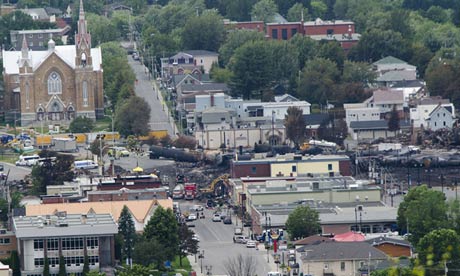The Fukushima nuclear power plant is probably still leaking contaminated water into the Pacific Ocean despite denials by the plant's operator, regulators say.
It has apparently been leaking contaminated water into the ocean for the two years since the earthquake/tsunami disaster that saw three of the plant's six reactors suffer a meltdown, Shunichi Tanaka, head of Japan's Nuclear Regulation Authority said Wednesday.
Regulators say Fukushima plant leaking contaminated water into ocean
Fracking research: What's behind EPA's abandoned studies?
 When the Environmental Protection Agency abruptly retreated on its multimillion-dollar investigation into water contamination in a central Wyoming natural gas field last month, it shocked environmentalists and energy industry supporters alike.
When the Environmental Protection Agency abruptly retreated on its multimillion-dollar investigation into water contamination in a central Wyoming natural gas field last month, it shocked environmentalists and energy industry supporters alike.
In 2011, the agency had issued a blockbuster draft report saying that the controversial practice of fracking was to blame for the pollution of an aquifer deep below the town of Pavillion, Wy. 2013 the first time such a claim had been based on a scientific analysis.
Shale gas ban in France to remain, says Hollande
French President Francois Hollande has again ruled out exploration for shale gas during his presidency. The comments come as a French court was due to examine an appeal against a government ban on "fracking".
France has some of the most plentiful reserves of shale gas in Europe, but there are objections to shale exploration on environmental grounds.
‘Radioactivity found in Swiss lake’ near nuclear plant
 Scientists have discovered a radioactive substance in sediment under a Swiss lake used for drinking water and situated near a nuclear plant, the Le Matin Dimanche weekly reported Sunday.
Scientists have discovered a radioactive substance in sediment under a Swiss lake used for drinking water and situated near a nuclear plant, the Le Matin Dimanche weekly reported Sunday.
While scientists cited in the report stressed there was no danger to human health, the discovery raises concerns about safety practices and a lack of transparency at the Muehleberg nuclear plant in northwestern Switzerland.
Quebec's Lac-Mégantic oil train disaster not just tragedy, but corporate crime
 Five days after a train carrying crude oil derailed and exploded in Lac-Mégantic, Quebec, the rural town resembles a scene of desolation. Its downtown is a charred sacrifice zone. 50 people are likely dead, making the train's toll one of the worst disasters in recent Canadian history.
Five days after a train carrying crude oil derailed and exploded in Lac-Mégantic, Quebec, the rural town resembles a scene of desolation. Its downtown is a charred sacrifice zone. 50 people are likely dead, making the train's toll one of the worst disasters in recent Canadian history.
In the explosion's aftermath, politicians and media pundits have wagged their finger about the indecency of "politicising" the event, of grappling with deeper explanations. We can mourn, but not scrutinise. In April, prime minister Stephen Harper even coined an awkward expression – "committing sociology" – to deride the search for root causes about horrifying events, in the wake of an unrelated, alleged bombing attempt.
Confirmed: Fracking Triggers Quakes and Seismic Chaos
 Major earthquakes thousands of miles away can trigger reflex quakes in areas where fluids have been injected into the ground from fracking and other industrial operations, according to a study published in the journal Science on Thursday.
Major earthquakes thousands of miles away can trigger reflex quakes in areas where fluids have been injected into the ground from fracking and other industrial operations, according to a study published in the journal Science on Thursday.
Previous studies, covered in a recent Mother Jones feature from Michael Behar, have shown that injecting fluids into the ground can increase the seismicity of a region. This latest study shows that earthquakes can tip off smaller quakes in far-away areas where fluid has been pumped underground.
Fracking waste fluids "kind of act as a pressurized cushion," said a lead author on the study.
An Open Letter to President Obama from Gasland Director Josh Fox
 I write to request a meeting with you and families directly impacted by oil and gas drilling and fracking—as documented in Gasland Part II—together with a small group of scientists and engineers who are also featured in the film.
I write to request a meeting with you and families directly impacted by oil and gas drilling and fracking—as documented in Gasland Part II—together with a small group of scientists and engineers who are also featured in the film.
We would like to discuss health and economic impacts felt by communities located near the oil and gas fields, share our first-hand stories, and provide you with evidence on rates of well leakage, water contamination, air pollution and methane emissions.
More Articles...
Page 64 of 201

 Environmental Glance
Environmental Glance






























